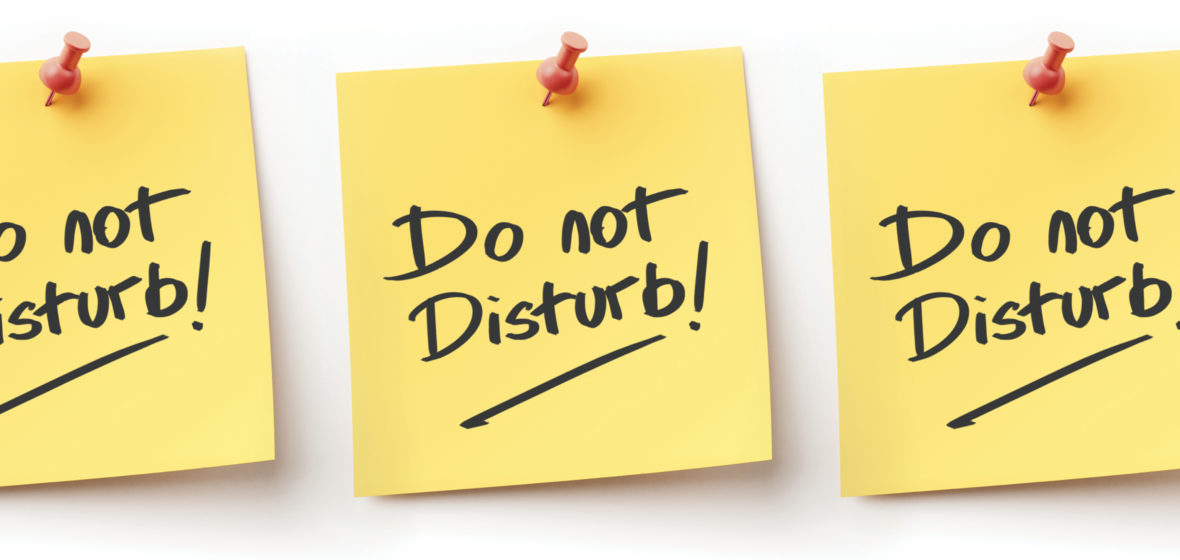In a time when working from home also means living at the office, can we reclaim the right to switch off notifications?
The motto of Victoria Police is “Uphold the Right”. Earlier this year, those words took on new meaning when the organisation agreed that police officers were entitled to switch off at home without being disturbed by calls, messages or emails.
In April, the Fair Work Commission approved an Enterprise Bargaining Agreement (EBA) for nearly 17,000 officers in the Victoria Police Force, granting them “the right to disconnect”. This means that, with the exception of a genuine emergency or concern for welfare situations, officers are not to be contacted outside of their specified working hours.
In a 134-page decision, the Commission noted “supervisors and managers must respect employees’ periods of leave and rest days”.
“Other than in emergency situations or genuine welfare matters, employees must not be contacted outside of the employee’s hours of work, unless the employee is in receipt of an availability allowance.
“Employees are not required to read or respond to emails or phone calls outside their effective working hours.”
The new agreement applies to those on the frontline and is expected to pave the way for other public sector workplaces to introduce similar policies.
While stopping short of legally enshrining the right to disconnect, many companies in the private sector are looking to follow suit with endorsed downtime and eliminating unspoken requirements for 24/7 availability.
Economist and Professor Barbara Pocock from the University of South Australia’s Business School tells LSJ “I think there are good reasons why Victorian police are first through the gate in Australia.”
“High pressure occupations where work is very demanding and intense particularly need good recovery time: time free of work issues, time to regenerate by doing things that keep our attention off work, and time to keep our relationships in good order.
“I have interviewed and surveyed thousands of workers in my time, including lawyers, who seek and need limits on their time at work.”
Some global corporations, including US finance giant Goldman Sachs, have implemented policies like “the Saturday rule”, where junior staff are not expected to be in the office from 9pm Friday to 9am Sunday.
Law firms, too, have come under pressure for the demands placed on staff, especially younger employees, to perform well outside the realm of a standard day at the office.
In 2019, the Hayne Royal Commission into Misconduct in the Banking and Financial Services Industry exposed the long hours expected of some graduate lawyers. Evidence revealed some were sleeping under desks and consistently clocking overtime to meet the expectations.
That evidence led to new federal rules mandating that firms conduct regular pay reconciliation for graduate lawyers, clerks and paralegals and advise them how their salary is calculated; including what overtime hours are expected.
“It’s challenging in both the private and public spheres,” Pocock says.
“Workplace cultures vary very widely according to the local management style, the nature of the work, and the individual circumstances of workers.
“The expectations of clients and customers are very important in setting meaningful limits on connection. So early discussion of rules and expectations is important including discussion of emergency situations, and what constitutes an emergency.”

“If always being tuned into work is the expectation, then those with caring responsibilities, who are often women, will be left behind.”
Working from home or living in the office?
The disconnect precedent takes on new meaning in the remote-working environment and a modern trend of “availability creep”: the pressure, whether real or perceived, to be constantly on call to answer any message or alert from the office. Far from an antiquated mindset that working from home was a chance to switch off on company time, a 2020 survey from The Australia Institute recorded that employees were clocking an extra 5.3 hours of overtime each week, up from 4.6 hours in the previous year.
The Australian Council of Trade Unions (ACTU) unsurprisingly backed the changes at Victoria Police. Its Secretary Sally McManus noted the decision’s relevance for all professionals and workers in the current remote environment.
“The potential for ‘work without end’ appears to be more likely to occur with those working from home. There is also an inherent danger that there will no longer be respect for the boundaries between paid work and private life,” McManus told LSJ.
“The right to disconnect is extremely important for the mental health of all workers and ensuring work-life balance. We know that working from home often means working longer hours and struggling not to be pulled into work after hours – the right to disconnect has never been more important.
“If always being tuned into work is the expectation, then those with caring responsibilities, who are often women, will be left behind. This expectation creates an unfair work environment.
“The right to disconnect is well established in some parts of Europe and Australian unions have already made some headway in this space … in their enterprise agreements.”
One of the critical parts of the Victorian decision noted the often-disturbing nature of police work, opening the door to other industries and professions who confront direct or vicarious trauma to follow suit and demand the right to disconnect.
“There are serious health concerns that come with not being able to disconnect, including anxiety and heart problems. The right to disconnect is ultimately good economic and social policy,” McManus says.
The global workforce disconnect
Other countries have already taken steps to ensure their employees’ rights are not outpaced by the rapid spread of technological intrusion.
In France, companies with more than 50 employees must engage with employees annually to ensure digital device time is regulated to maintain respect for private and family time. This was part of changes announced in the 2016 French Labour Code.
Although compliance has often suffered due to lack of enforcement, there have been some severe doses of punishment including an almost $AU100,000 fine for a pest control company that ordered a regional director to permanently leave his phone on to respond to requests from colleagues or customers. Following the French decision, in early 2021 the European Parliament approved a resolution on disconnecting, noting “the right for workers to switch off their digital tools including means of communication for work purposes outside their working time without facing consequences for not replying to e-mails, phone calls or text messages”. The Canadian Government has also considered a similiar approach but Pocock says employers should be setting the example.
“Employers have a responsibility to set limits in new ways in these new environments with limitless potential access to workers.”



